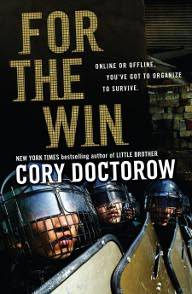I pretty much took the month of April off this blog. The main reasons were so that I could focus on the end of semester and the great end of semester projects/reports from my students and so that I could fret about the WWW2010 Conference.
There was no fretting necessary about WWW2010. Kathy Greene, our conference Diva, and the wonderful professional conference organizers from YCC did such a fantastic job that no sane person could fret. A conference co-chair could be nervous nonetheless. Between Kathy, Doc Searls and I, we did a good bit of press contact and interviews. And thanks to Janna Anderson of Elon who organized the co-located FutureWeb2010 and her students, there is a lot of the conference — especially that which is of more general interest — on the web now. Janna also recruited Pew Internet’s Lee Rainie to lead interview/chat sessions with all of our plenary speakers and several others.
And I can’t say enough about my co-chair, Michael Rappa, who put a ton of time thinking from the very beginnings of our endeavor together about how to form the experience and to control expenses and who provided not only his wisdom and insight but some serious resources through his Institute for Advanced Analytics at NCSU.
Local to UNC, the great students in the School of Information and Library Science provided some very significant volunteer hours and good humor. Dave Potenziani organized the Future of Public Health panel. Fred Stutzman organized the Future of Social Networks panel. Penny Abernathy, Woody Hartzog (JoMC), Alice Ammerman, Kurt Ribisl, Deborah Tate (Public Health), and Anne Klinefelter (Law) all served as panelists at FutureWeb2010.
Papers and posters from UNC authors included:
What are the most eye-catching and ear-catching features in the video?: implications for video summarization
Yaxiao Song, Gary Marchionini, Chi Young Oh
INEX+DBPEDIA: a corpus for semantic search evaluation
Jose R. Perez-Aguera, Javier Arroyo, Jane Greenberg, Joaquin Perez-Iglesias, Victor Fresno
Using BM25F for Semantic Search.
José R. Pérez-Agüera, Javier Arroyo, Jane Greenberg, Joaquin Perez-Iglesias and Victor Fresno.
Semantic Search Workshop Best Paper Award
I did a little overtime work by chairing the Future of Media panel which included Penny Abernathy, Michael Clemente, Dan Conover, Sam Matheny and Doc Searls, sitting in for Michael Tiemann (who was held over at what turned out to be a very important software patent trial in east Texas) on the Open Source panel, being part of the plenary panel on Government Data with Tim Berners-Lee, David Ferriero, Andrew McLaughlin, and Nigel Shadbolt with Jim Hendler as our moderator.
As co-chair, I got to introduce some great and generous old friends – plenary speaker Carl Malamud and Bebo White as well as help handle the questions for Vint Cerf and danah boyd.
Greg DeKoenigsberg really pitched in and helped me create a Developers Track on far too short a notice. Thanks to Greg’s strong outreach, we had strong presentations and the right people in the rooms to here them.
[still writing this]
.jpg)









Recent Comments